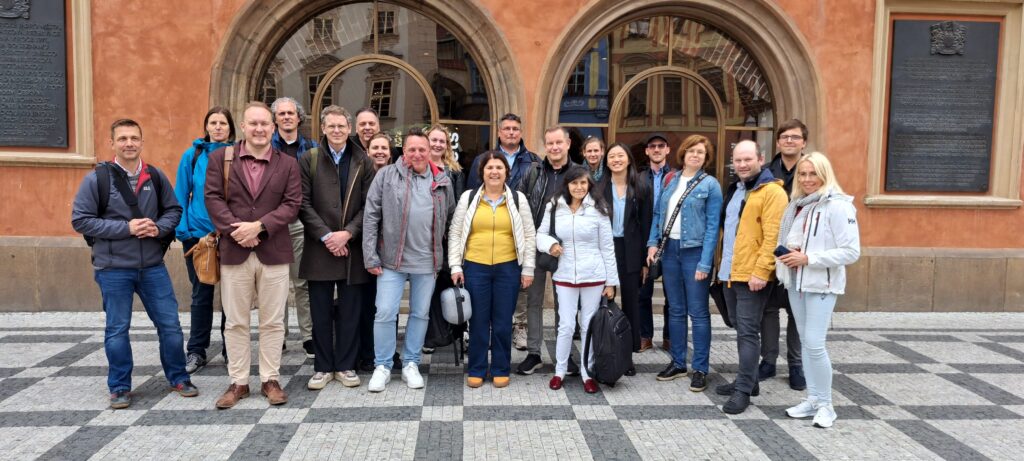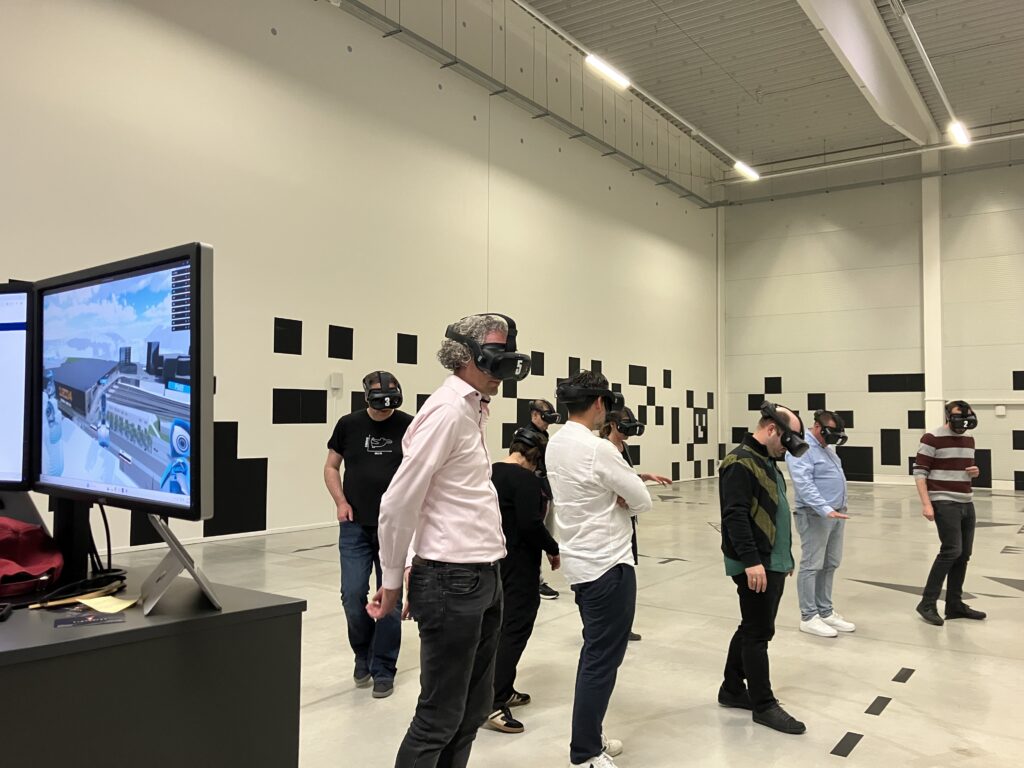5CC+ networkCityGMLDigital Twin
United for the Digital City: How the 5CC+ Network Is Advancing the Urban Digital Twin Worldwide
How can cities learn from one another to develop digital solutions for urban spaces – efficiently, sustainably, and based on open standards? At the 5CC+ Meeting 2025 in Prague, six international cities and technology partners came together with a shared goal: to establish the Urban Digital Twin (UDT) as a common foundation for modern urban development.
Exchange on Urban Digital Twins
From May 5 to 7, 2025, representatives from Singapore, Vienna, Rotterdam, Helsinki, Hamburg, and host city Prague gathered for the annual 5CC+ network meeting.
The focus: to share insights, progress, and experience in building, applying, and evolving Urban Digital Twins – in a practical, collaborative, and international setting. Among the attendees: Virtual City Systems’ managing directors Dr. Claus Nagel and Dr.-Ing. Lutz Ross.
The 5CC+ Network: Collaborative Digital Urban Planning
Since 2015, the 5CC+ network has connected cities working on the implementation and use of Urban Digital Twins.
Through regular online working groups and annual face-to-face meetings, the network enables hands-on exchange on technologies, standards, and workflows. Key topics such as vegetation modeling, semantic structuring, and system integration are being advanced jointly.
Vegetation and Subsurface Infrastructure in 3D City Models
Two topics took center stage in Prague, highlighting the importance of semantically rich 3D city models as a foundation for planning processes:
- The integration of urban vegetation (trees, green spaces, etc.) into the UDT for use in climate simulations.
- The modeling of the underground city, including infrastructure, utilities, and subterranean structures.
From AI to Citizen Engagement: Additional Use Cases
Beyond the core themes, several practical applications for the Urban Digital Twin were discussed:
- Digital building permits based on BIM and GIS
- Use of game engines, VR and AR for simulation, visualization, and public participation
- AI-supported 3D object detection from various input sources
- The shift towards 3D as the leading geospatial data model
A standout moment: the visit to Virtuplex, a large-scale VR space outside Prague. There, participants navigated a walkable 3D city model in real time – a shared, immersive environment for collaborative urban design.
Focus on Standardization: CityGML 3.0 and 3DCityDB 5.0
A key topic was the transition to CityGML 3.0, which enables modern use cases such as transport modeling, subsurface infrastructure, and advanced building structures.
A major milestone: the development of a CityGML 3.0 base profile within the 5CC+ network, designed to ensure compatibility with common GIS software. This initiative has been submitted to the Open Geospatial Consortium (OGC) for standardization, with support from additional vendors.
The new 3DCityDB 5.0 provides a proven, CityGML 3.0-compatible database technology – already in productive use in multiple cities. The software is developed by Virtual City Systems, with a clear focus on practical application.
“CityGML 3.0 gives us the foundation to represent complex urban structures with semantic precision and practical relevance. 3DCityDB 5.0 is our contribution to implementing this standard in real-world scenarios.”
Dr. Claus Nagel, Managing Director, Virtual City Systems
VC Suite: The Technological Foundation of the 5CC+ Cities
The VC Suite serves as the foundational technology for Urban Digital Twins in all 5CC+ cities. The transition to VC Map 6 is complete, with cities highlighting the solution’s open interfaces and easy integration into existing systems.
A strong example comes from Helsinki, where the VC Publisher has been fully integrated into automated workflows – via REST API, with no manual interaction. The result: a true System-of-Systems approach, as outlined in the DIN SPEC 91607 for Urban Digital Twins.
“Integrating the VC Publisher into automated workflows – like in Helsinki – shows the real-world potential of the Urban Digital Twin as a System-of-Systems. Our VC Suite provides the technological backbone for that.”
Dr.-Ing. Lutz Ross, Managing Director, Virtual City Systems
Shared Vision for the Digital City
The 5CC+ network connects cities that share common goals, challenges, and requirements. The Prague meeting once again demonstrated how collaboration can accelerate the path toward a standardized, interoperable Urban Digital Twin.

